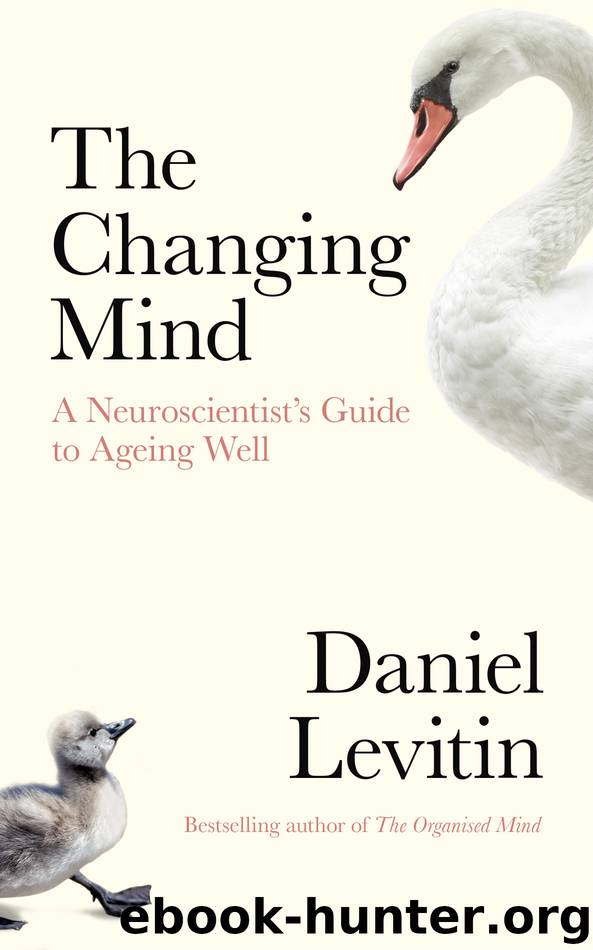The Changing Mind by Daniel Levitin

Author:Daniel Levitin [Levitin, Daniel]
Language: eng
Format: epub
ISBN: 9780241379417
Google: i4KaDwAAQBAJ
Publisher: Penguin UK
Published: 2020-02-27T00:00:00+00:00
Cholesterol, Fats, and Brain Health
Most of us know of the link between cholesterol, dietary fats, and heart disease, but it is interesting, and illuminating, to learn what these mean at a molecular, biological level.
Cholesterol is a waxy substance that circulates in your blood and attaches to proteins there.29 Your body needs cholesterol to build healthy cells, including brain cells, but high levels of certain forms of cholesterol can increase your risk of heart disease. When cholesterol combines with proteins, the resulting molecule is called a lipoprotein. Low-density lipoprotein (LDL, the “bad” cholesterol) transports cholesterol particles throughout your body. It can build up in the walls of your arteries, making them hard and narrow and causing arteriosclerosis.
High-density lipoprotein (HDL, the “good” cholesterol) picks up excess cholesterol and takes it back to your liver, which then removes it from your body.
Unhealthy eating habits and obesity can raise your bad cholesterol levels. Lack of physical activity can lower your good cholesterol levels. Smoking does both, especially in women, by damaging the walls of blood vessels and making them more likely to accumulate LDL deposits. LDL levels naturally rise with age, making healthy lifestyle habits increasingly important, especially after age fifty. There is a genetic component as well—the rate at which bad cholesterol climbs and the ability of physical activity to increase good cholesterol are partly inherited. If adopting healthy lifestyle habits (physical activity, improved diet) doesn’t optimize cholesterol levels, there are medications that can lower LDL (statins; for extreme cases, there’s a procedure called lipoprotein apheresis that uses a filtering machine to remove LDLs from the blood.)
As we’ve seen, though, well-intentioned interventions don’t always have the desired effect. It isn’t entirely clear that lowering LDL through the use of statins actually lowers your risk of heart disease—the statins may simply lower a marker associated with disease, and not an actual cause. And even so, statins have a tiny effect: in some studies, three hundred people have to take a statin to delay or prevent a heart attack for one person in a given year.30
Food labels in the United States and many other countries list the cholesterol content of those foods, but there is no scientific consensus about whether eating cholesterol-rich foods actually alters cholesterol levels in the blood. And many cholesterol-rich foods are high in necessary nutrients.
You do need fats in your diet: They’re a major source of energy, and they’re necessary for building the myelin sheath around neurons and for maintaining strong, healthy cells. But not all fats are created equal.31 The main types are:
saturated fats, found in meats, eggs, and whole-fat dairy products;
monounsaturated fats, found in olive and canola oil;
polyunsaturated fats, found in seeds, nuts, and fish and vegetable oils;
and trans fats, found in fried foods, microwave popcorn, and some commercially baked goods.
Download
This site does not store any files on its server. We only index and link to content provided by other sites. Please contact the content providers to delete copyright contents if any and email us, we'll remove relevant links or contents immediately.
| Beauty, Grooming & Style | Diets & Nutrition |
| Exercise | Longevity |
| Medical Conditions & Diseases |
The Longevity Diet by Valter Longo(4445)
The Body: A Guide for Occupants by Bill Bryson(3802)
Ikigai by Héctor García & Francesc Miralles(3144)
Limitless by Jim Kwik(2620)
The Body by Bill Bryson(2222)
The Checklist Manifesto by Atul Gawande(2204)
Memory Rescue by Daniel G. Amen(1961)
What Color Is Your Parachute? 2015 by Richard N. Bolles(1929)
Becoming Myself by Irvin D. Yalom(1912)
Breath by James Nestor;(1763)
Fat for Fuel by Joseph Mercola(1694)
Memory Rescue: Supercharge Your Brain, Reverse Memory Loss, and Remember What Matters Most by Amen Dr. Daniel G(1571)
Awakening Your Ikigai by Ken Mogi(1462)
Weight Training by Thomas Baechle(1461)
50 After 50 by Maria Leonard Olsen(1375)
Starting Over (Sugar Creek Romance ) by Jordan Silver(1374)
1610396766 (N) by Jo Ann Jenkins(1297)
The Telomerase Revolution by Michael Fossel(1288)
Supernormal: The Untold Story of Adversity and Resilience by Jay Meg(1251)
